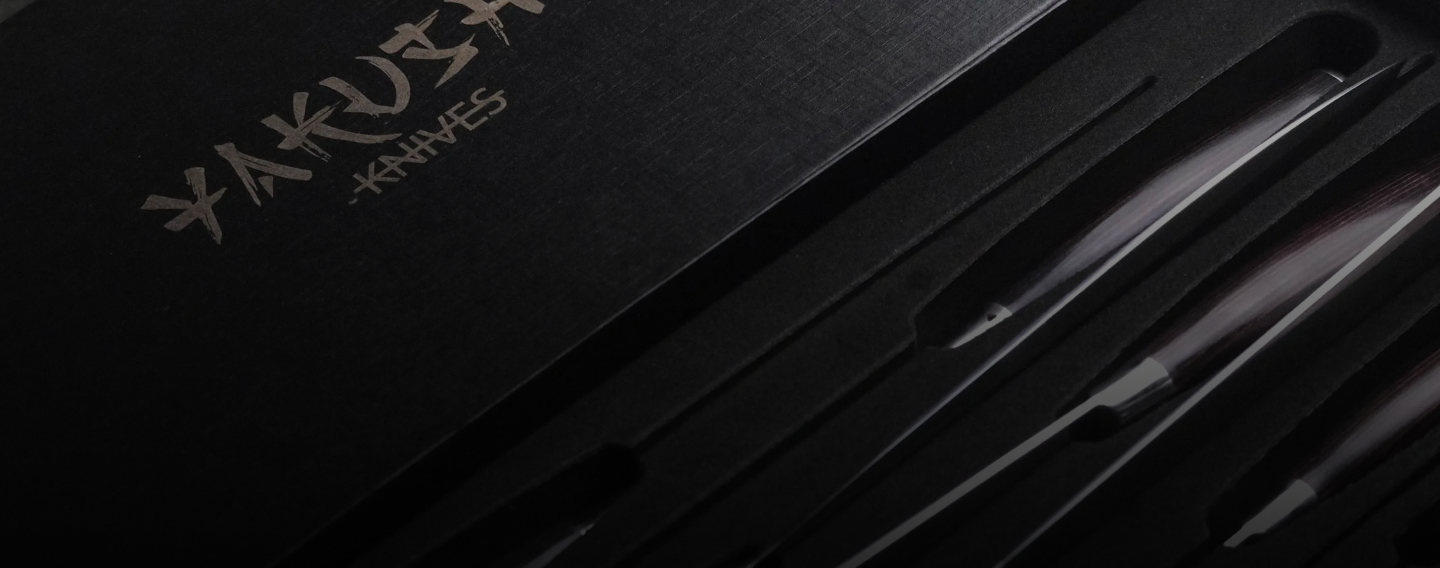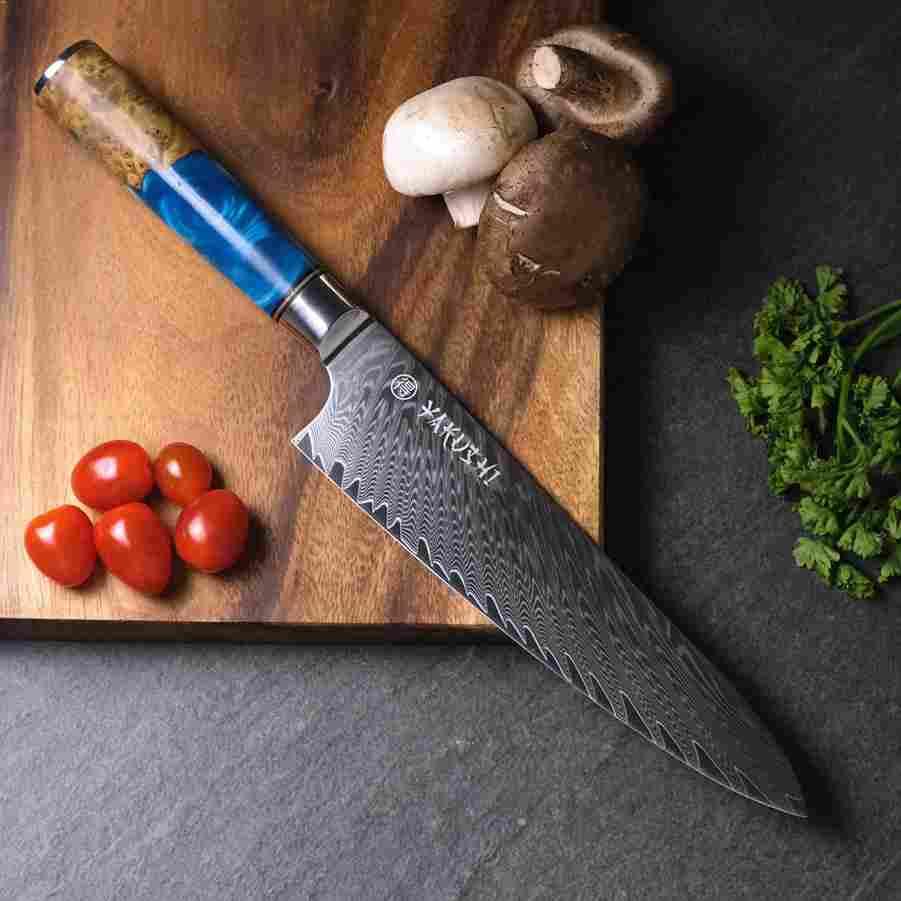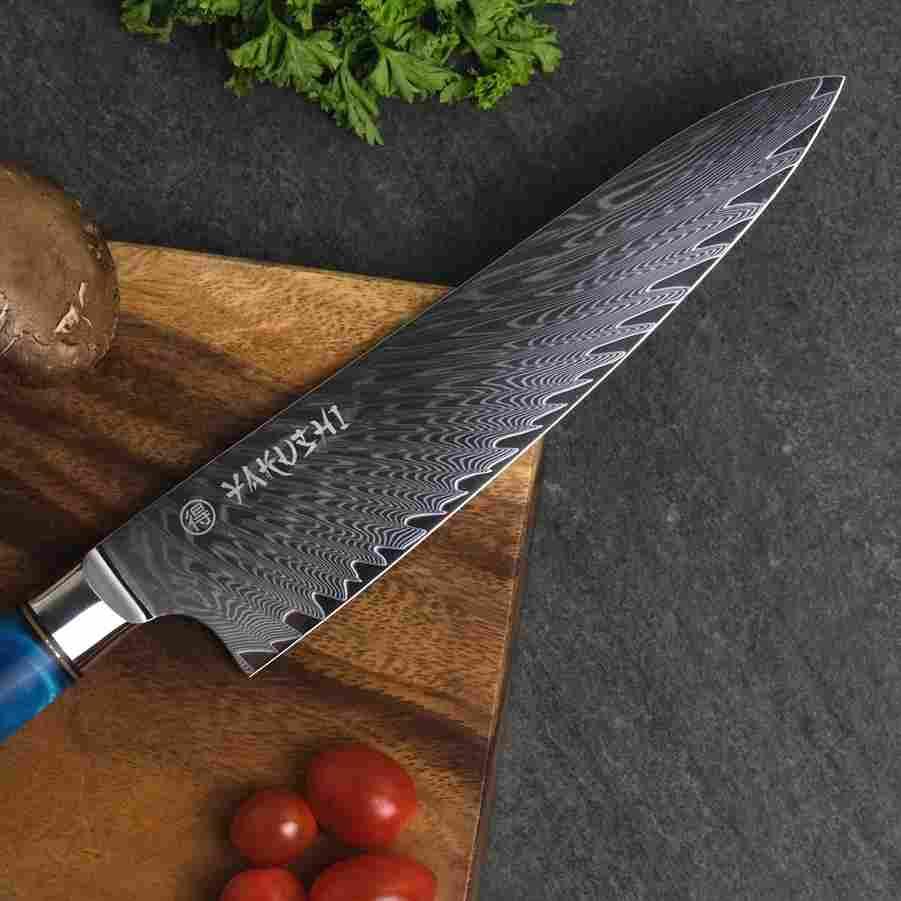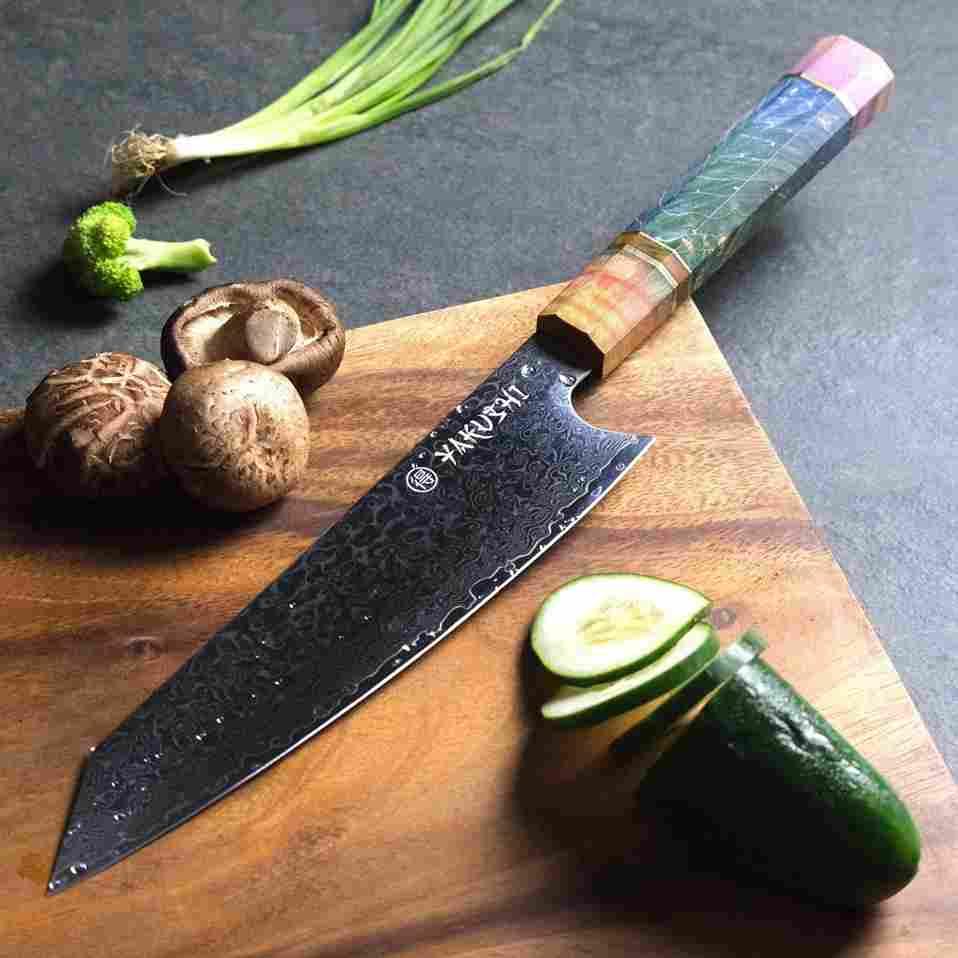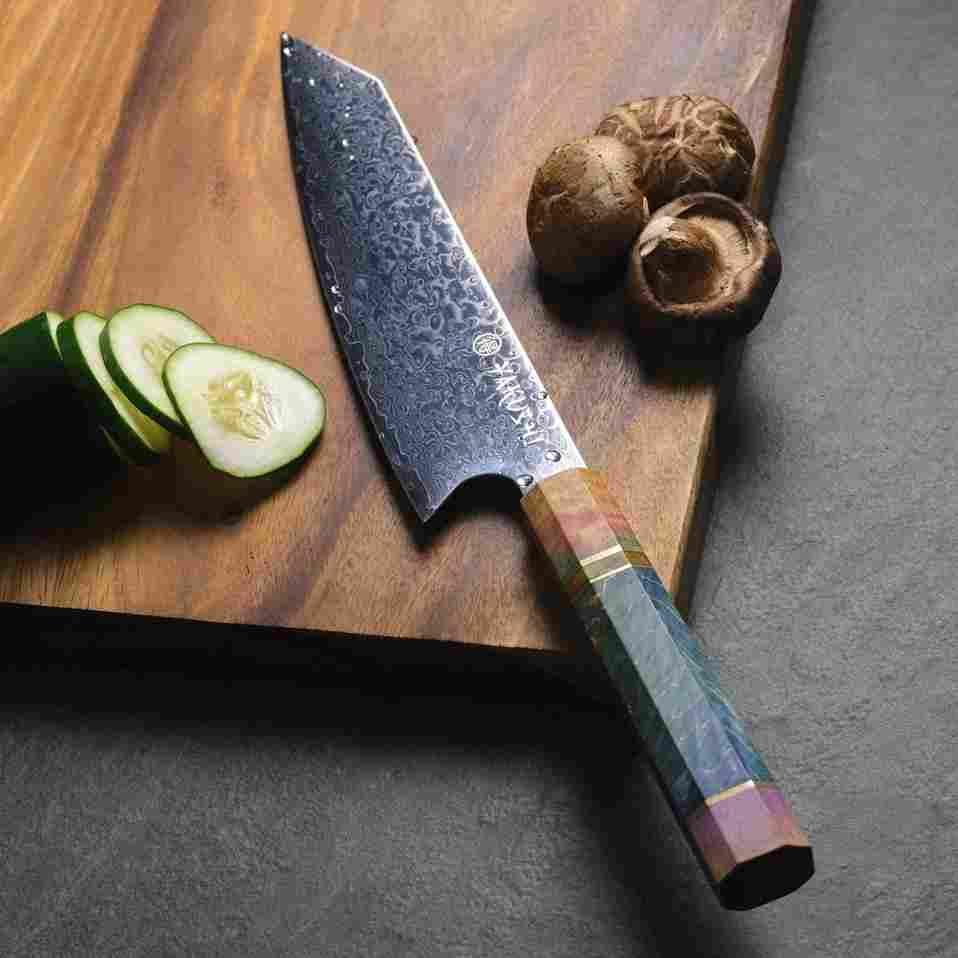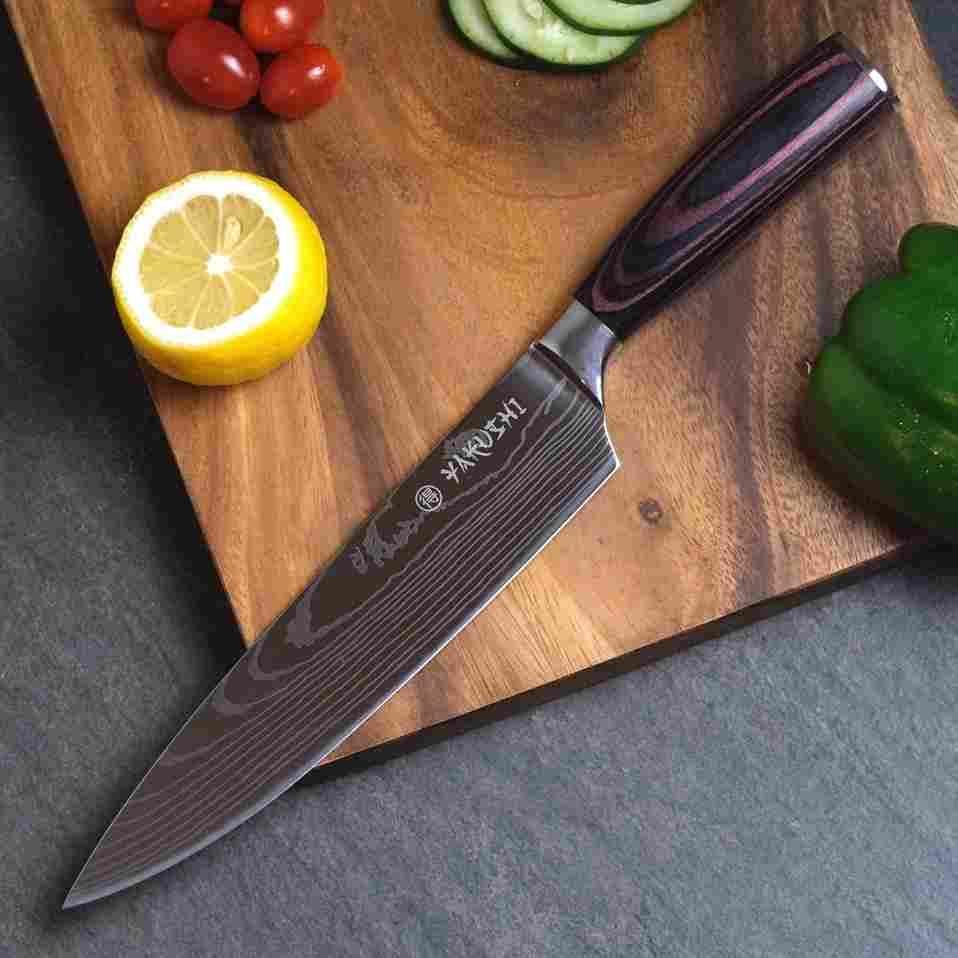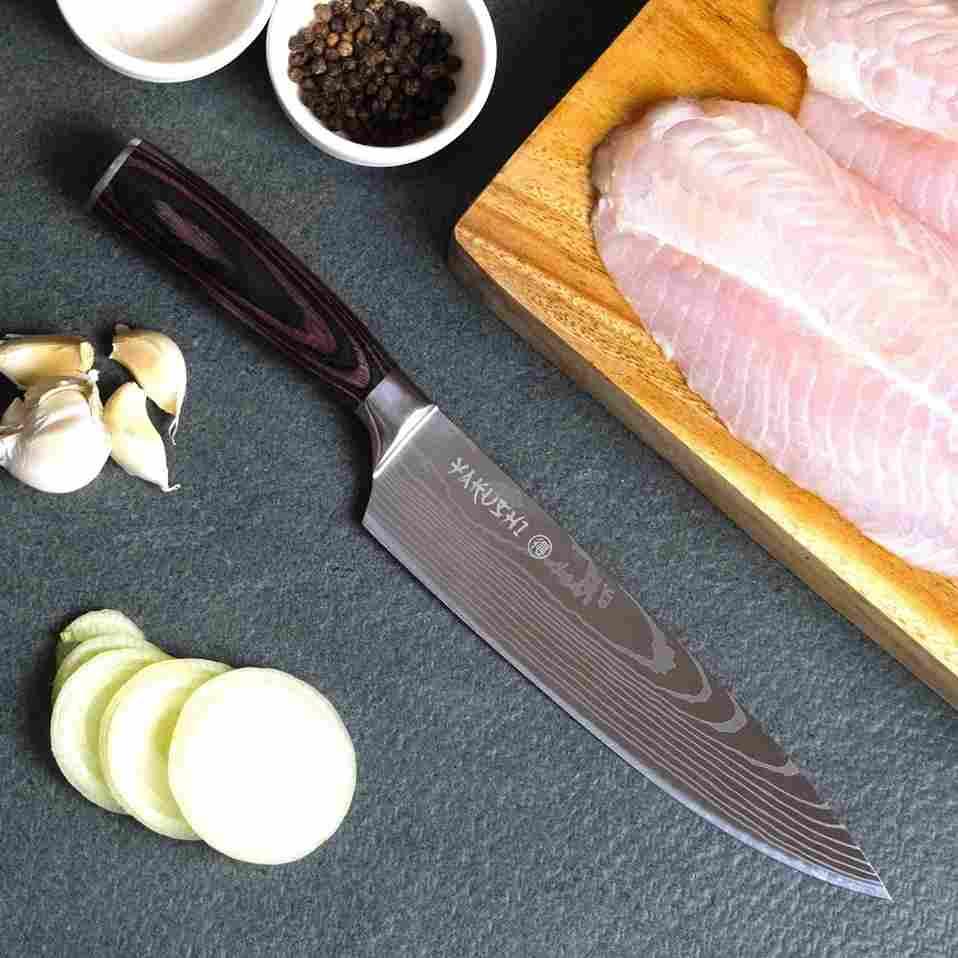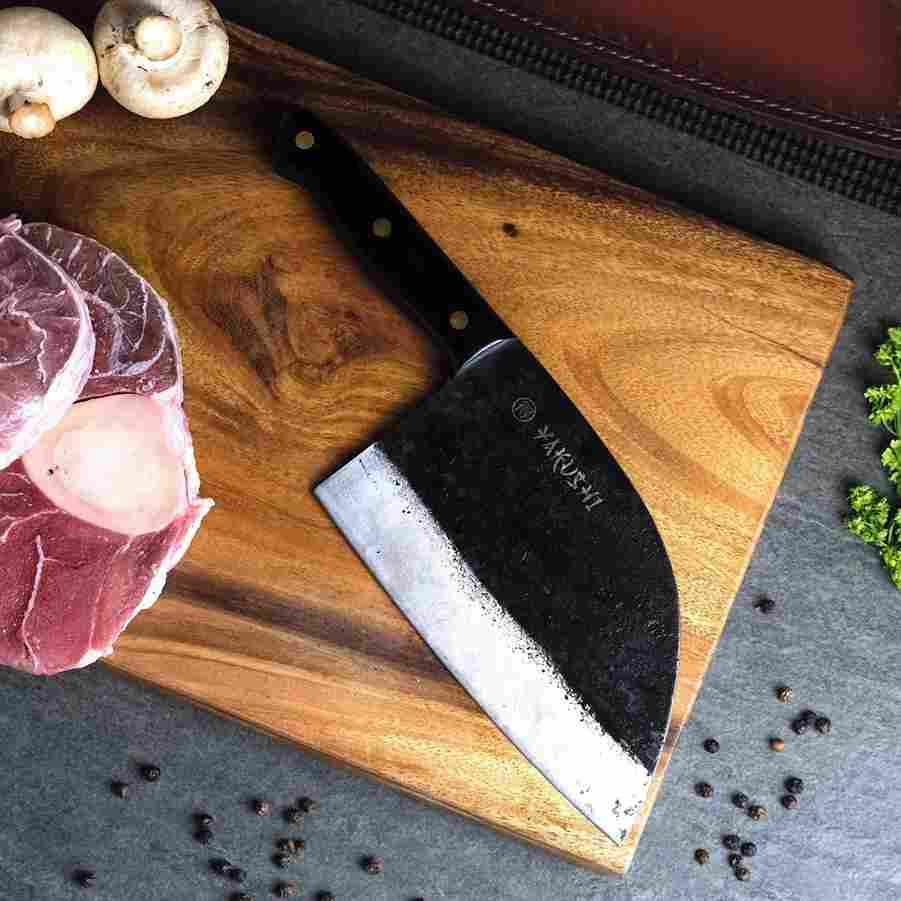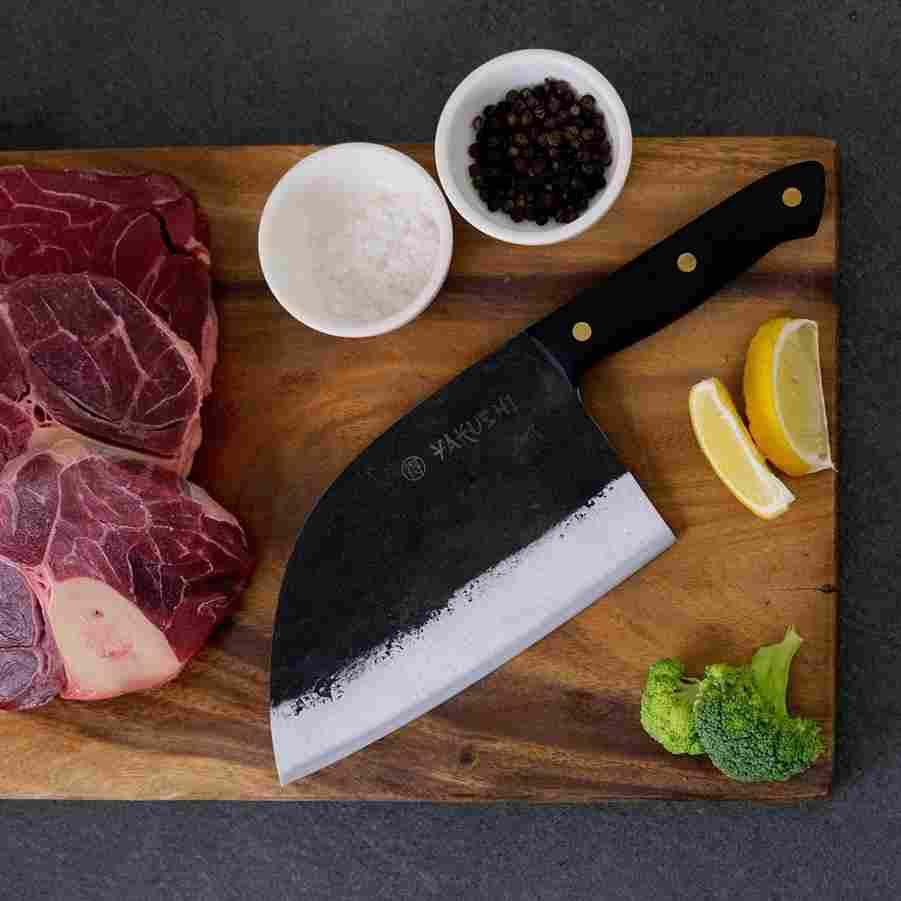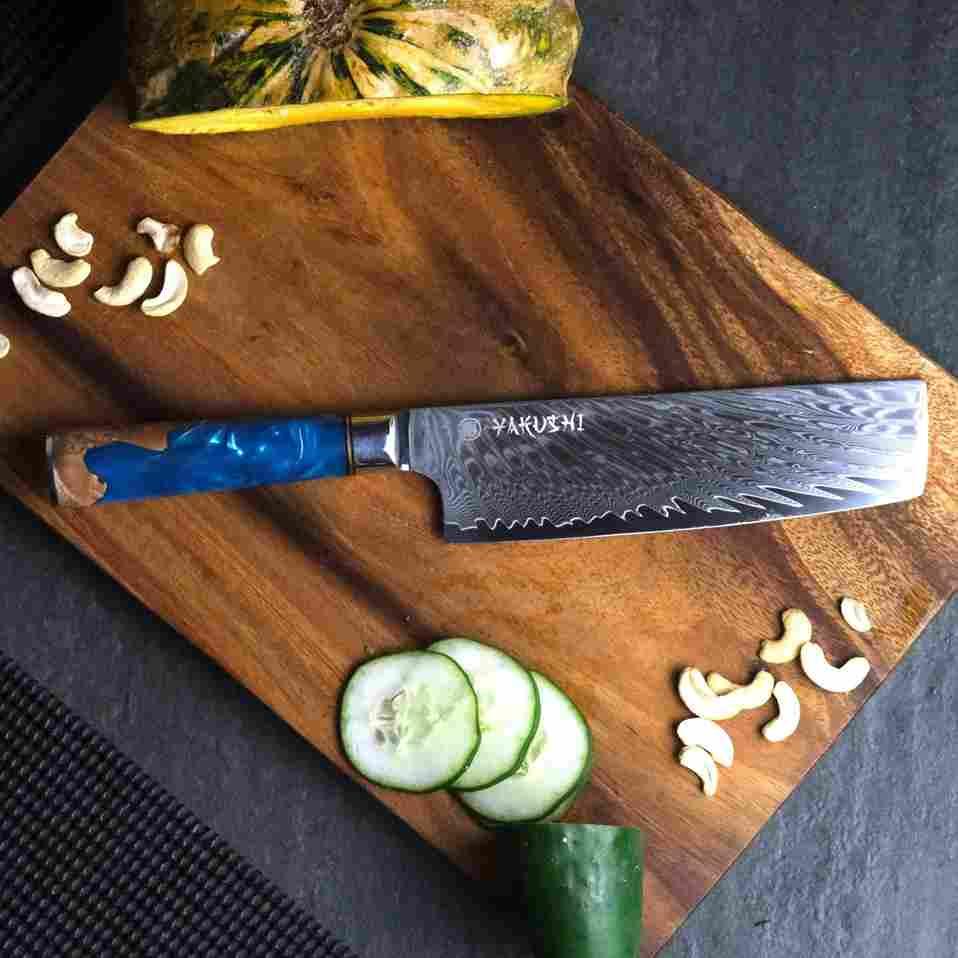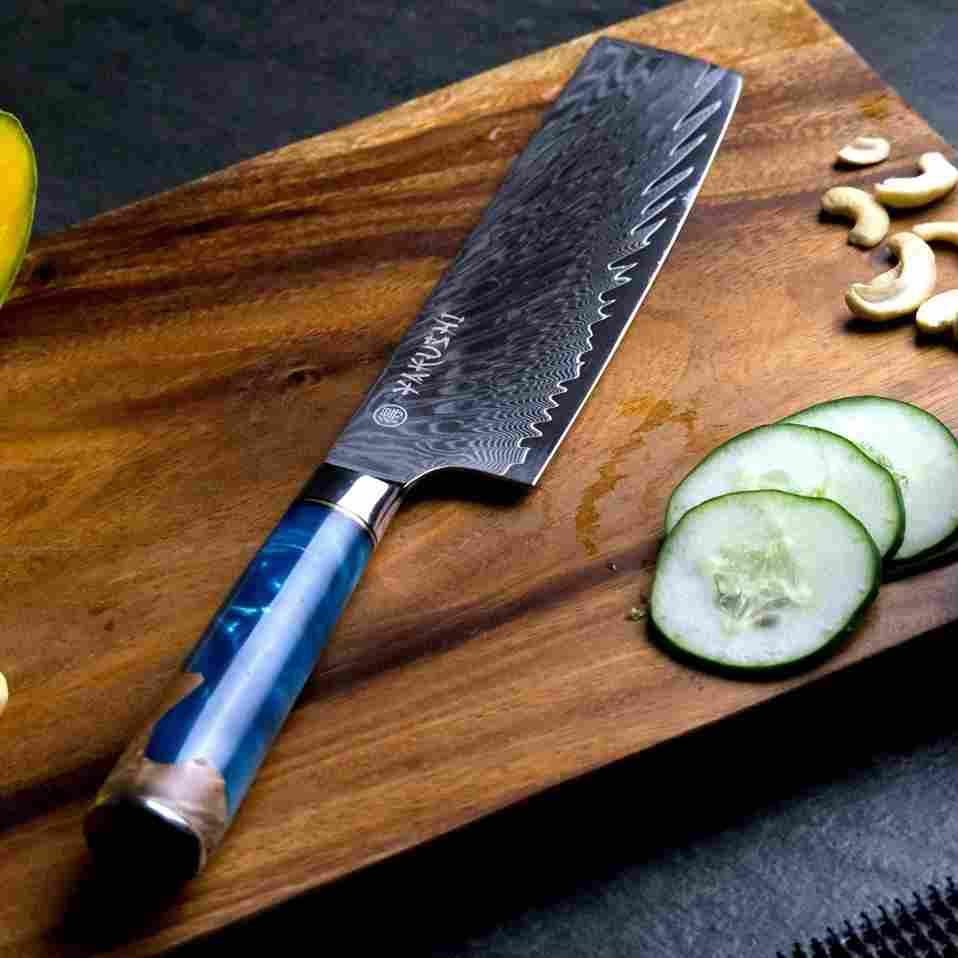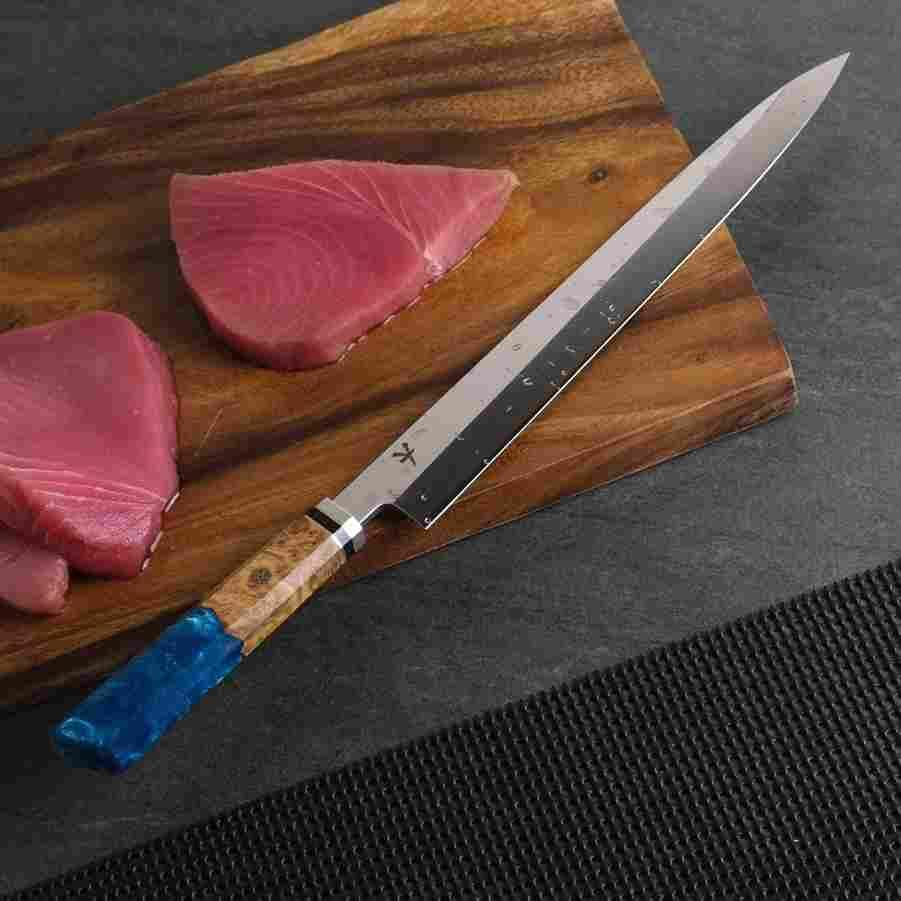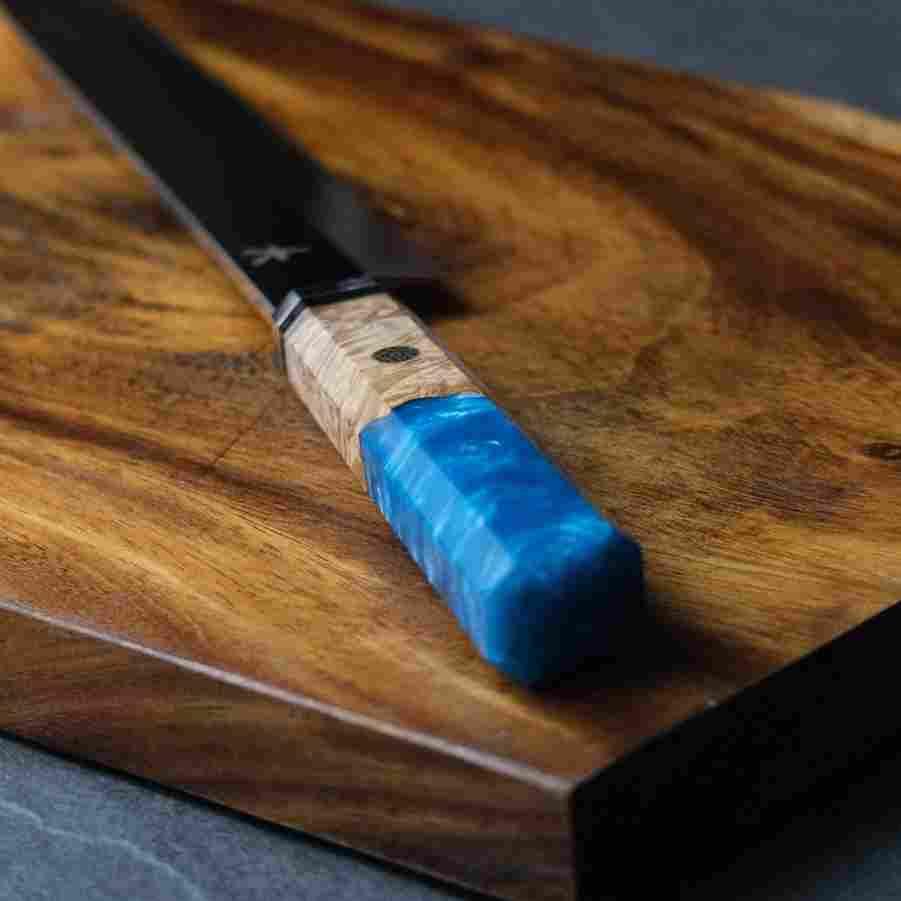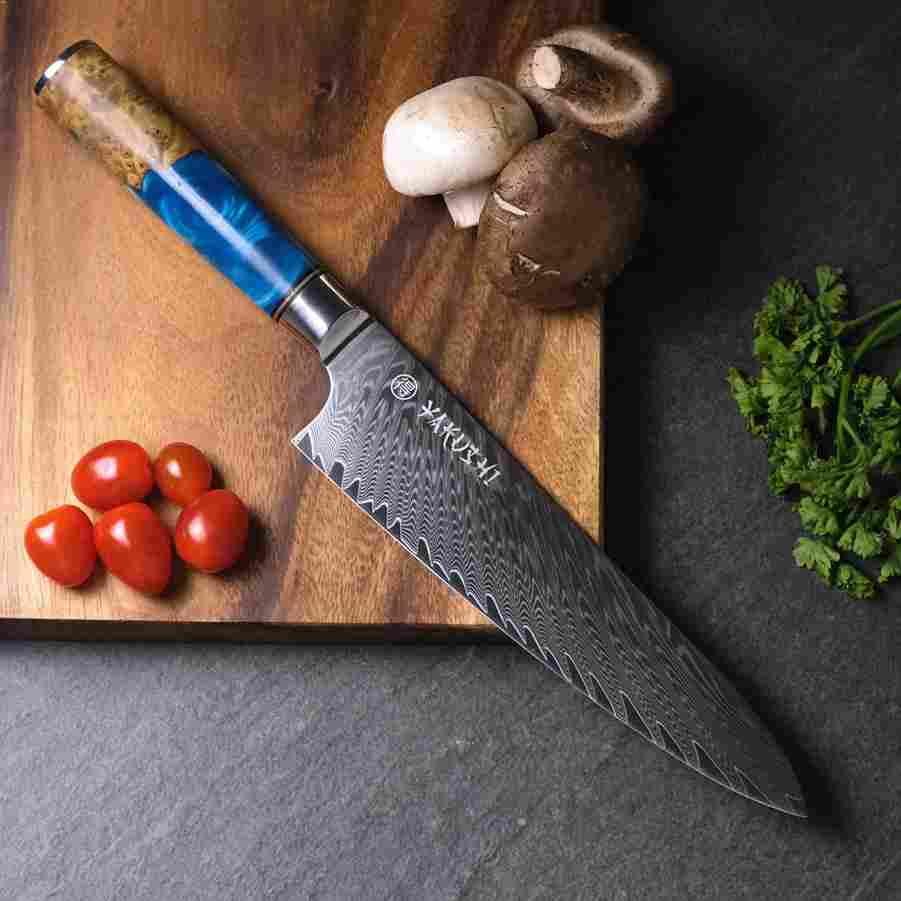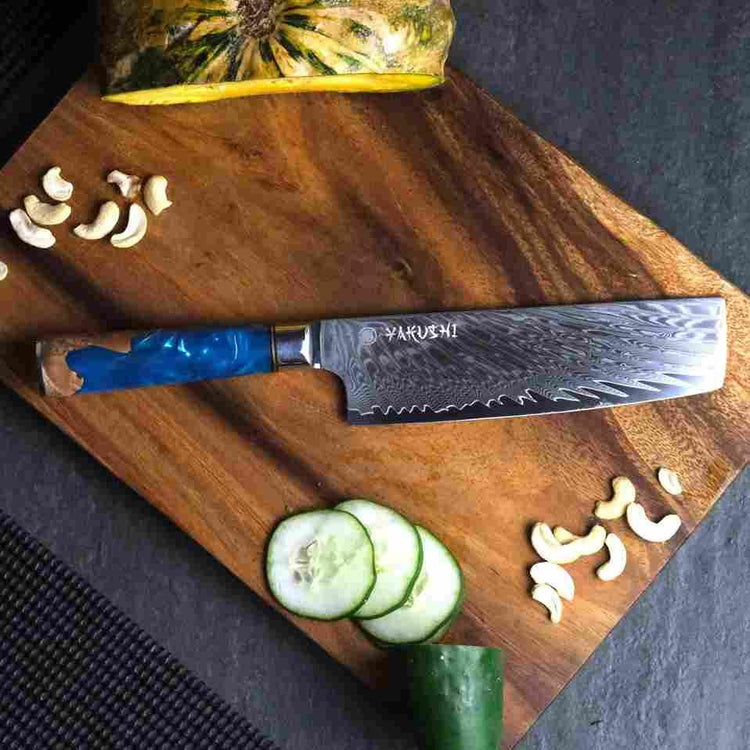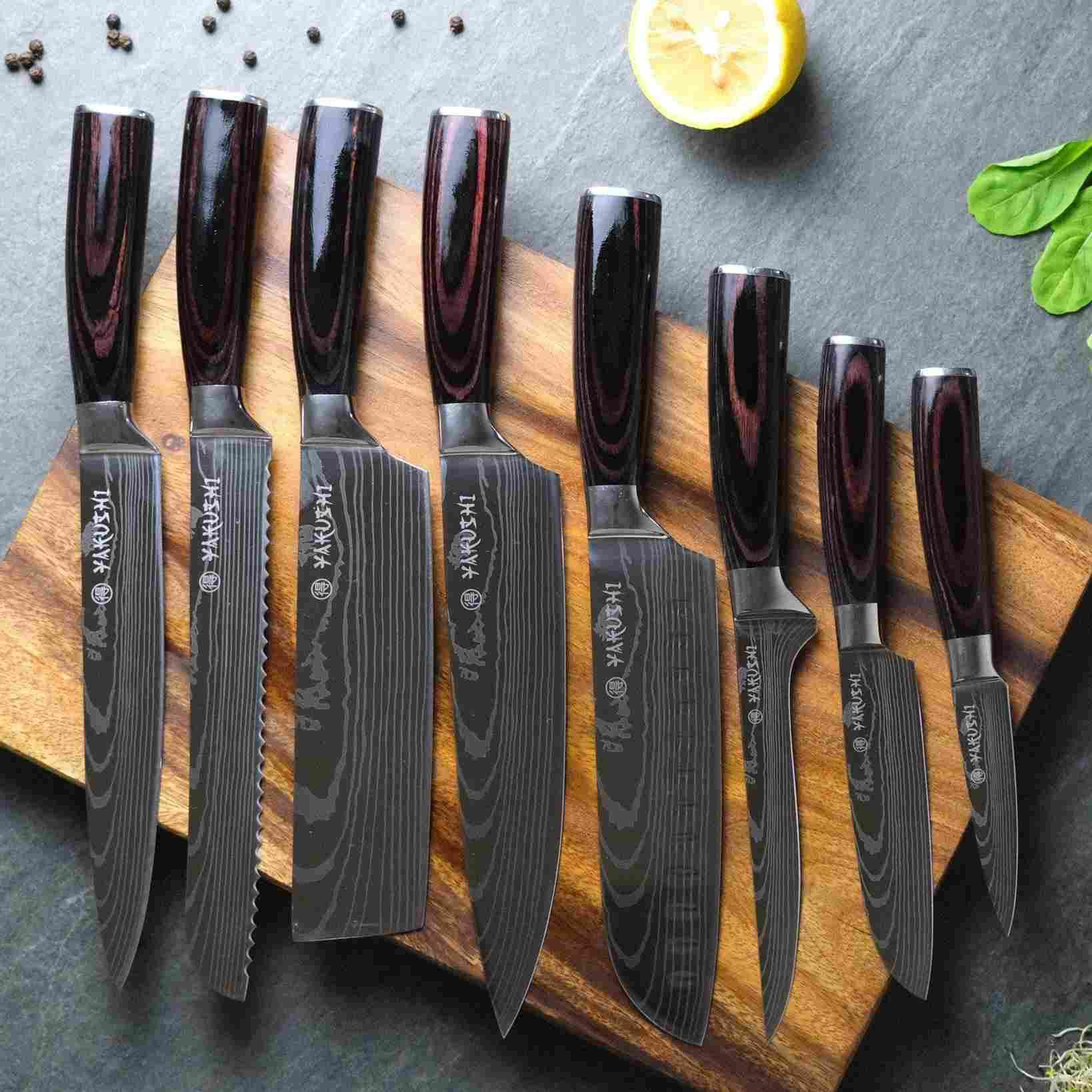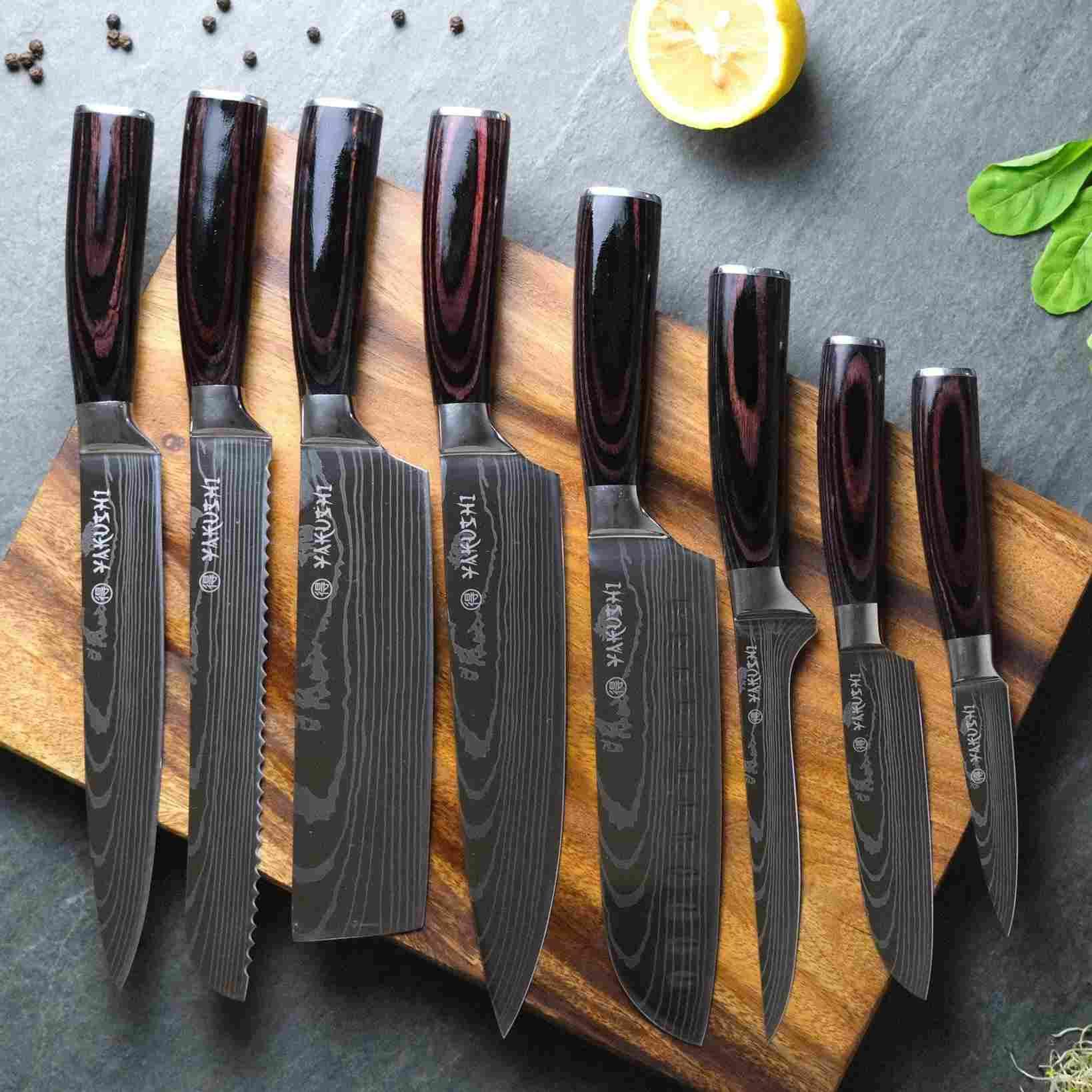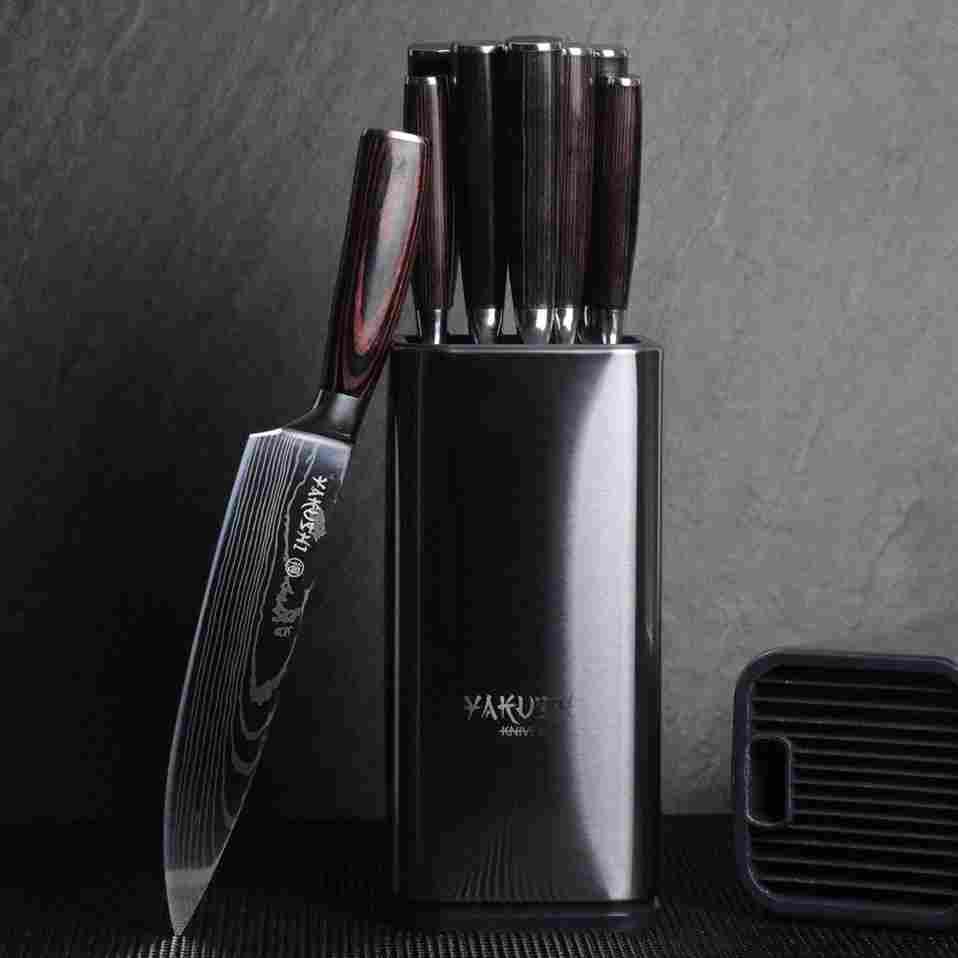Filters
6 products
Kitchen Knives — Premium Blades for Home & Professional Kitchens
Discover Exceptional Kitchen Knives — Crafted for Precision, Performance & Longevity
Welcome to the Yakushi Kitchen Knives collection — where traditional craftsmanship meets modern culinary demands. Our knives are designed for chefs and home cooks who demand sharpness, control, durability, and elegance in every slice, chop, and dice. Whether you prepare quick weekday meals or elaborate multi-course dinners, our kitchen knives elevate cooking from routine to refined.
Explore a curated range of knives — from versatile chef’s blades to specialized nakiri, sashimi, and butcher knives — each forged or crafted to meet the highest standards of quality and performance.
Why Choose Yakushi Kitchen Knives — What Sets Them Apart
🔪 Razor-Sharp Performance & Precision Cutting
Our knives are crafted for exceptional cutting performance. Hard steel, fine blade geometry, and sharp bevels allow for clean, precise cuts — whether slicing vegetables paper-thin, filleting fish, or cutting dense meats. A sharp, balanced blade reduces drag and increases control, enhancing both speed and safety in the kitchen.
🧰 Durability, Balance & Long-Term Reliability
Yakushi knives are built with quality steel and craftsmanship to ensure long-lasting performance. Proper heat treatment, balanced weight distribution, and durable handles give each knife resilience under frequent use. With proper care, they’re tools that stay sharp and reliable for years — turning a one-time purchase into a long-term investment.
🍣 Versatility for Every Kitchen Task
From general-purpose chef knives to specialty blades — nakiri for vegetables, sashimi knives for fish, and butcher knives for heavier tasks — our collection covers a wide range of cooking needs. This versatility ensures you have the right knife for any kitchen challenge, whether everyday meals or gourmet preparation.
🎨 Artistry, Design & Aesthetic Appeal
Each Yakushi knife blends functional excellence with aesthetic quality. Clean lines, balanced handles, and thoughtful finishes make our kitchen knives not just tools — but objects of craftsmanship. In a modern kitchen, the right knife is both practical equipment and a statement of style.
🍽️ Designed for Both Home Cooks and Professionals
Whether you’re cooking daily meals at home or working in a professional kitchen, Yakushi knives adapt. Their balance of precision, durability, and comfort makes them suitable for frequent use, long prep sessions, or occasional cooking.
Explore the Types of Knives in this Collection & Their Best Uses
| Knife Type | Best Use Cases | Why It Fits |
|---|---|---|
| Chef / Gyuto-Style Knife | All-purpose: meat, vegetables, fish, general prep | Balanced for versatility — ideal for daily cooking needs |
| Santoku / General-Purpose Knife | Chopping, slicing, dicing veggies and meats | Lighter, easy to handle — great for frequent kitchen work or light-duty tasks |
| Nakiri / Vegetable Knife | Veggies, herbs, fine slicing, julienne | Straight blade geometry gives clean cuts without damaging delicate produce |
| Sashimi / Yanagiba Knife | Precision slicing of fish, sushi-grade cuts, delicate slicing | Thin, sharp blade ideal for clean, smooth cuts — preserves texture and presentation |
| Butcher / Heavy-Duty Knife | Dense meats, bones (if appropriate), hard produce | Robust build and heavier weight for strength and cutting power |
| Specialty / Utility Knives | Small prep tasks — trimming, peeling, small-item slicing | Compact, easy to maneuver — useful for delicate or detailed work |
With this variety, your kitchen is ready for almost any culinary challenge — from home cooking to gourmet plating.
Care & Maintenance — How to Keep Your Knives Performing at Their Best
Proper maintenance is key to preserving sharpness, performance, and the longevity of your knives:
-
Hand-wash only: Use mild soap and warm water; avoid dishwashers or harsh detergents; dry thoroughly immediately after washing.
-
Sharpen properly: Use a good whetstone or sharpening system — especially for harder steels — to maintain the edge angle and cutting performance.
-
Store safely: Use a magnetic knife rack, knife block, or blade guards rather than tossing knives loosely in a drawer.
-
Use appropriate cutting surfaces: Prefer wood or bamboo cutting boards over hard surfaces like glass or stone to preserve the edge.
-
Regular maintenance: Occasionally hone or re-sharpen your knife depending on frequency of use; regular care helps avoid premature dullness or damage.
These practices preserve performance, prevent corrosion or damage, and help your knives remain precise and beautiful for years.
How to Choose the Right Kitchen Knife — Buying Guide
-
Identify your cooking style: Frequent home meals, salads and vegetables, meat-heavy cooking, or fine slicing (fish, herbs)? Your cooking habits influence which knife type makes the most sense.
-
Consider blade geometry and weight: For precision and clean slicing, choose thinner blades; for heavy-duty chopping or dense materials, a heavier, thicker blade is preferable.
-
Think about maintenance commitment: Harder steels hold edge longer but may need more careful maintenance (sharpening, drying). Softer or stainless steels are more forgiving for casual users.
-
Match knife to tasks: One knife rarely fits all — consider owning both a chef/general knife and one or two specialty knives (e.g., nakiri, utility) for best performance.
-
Budget vs. value: A quality knife is an investment. A well-made blade with proper care can outperform and outlast cheaper knives many times over — saving you money and frustration long-term.
Why Yakushi Kitchen Knives Are a Smart Choice — Our Promise to You
-
Premium materials & craftsmanship: We select high-quality steel, apply careful forging or precision manufacturing, and ensure every knife is balanced and refined.
-
Wide, curated selection: From everyday chef knives to specialty knives, we offer variety to suit different cooking styles, cuisines, and skill levels.
-
Performance + longevity: Our knives are built to perform — sharp, durable, reliable — and, with proper care, last for years.
-
Transparent guidance & support: We provide clear care instructions, sharpening guidance, and product information to help you choose and maintain your knife wisely.
-
Commitment to quality and satisfaction: We believe a kitchen knife isn’t just a tool — it’s an extension of your cooking style and kitchen identity.
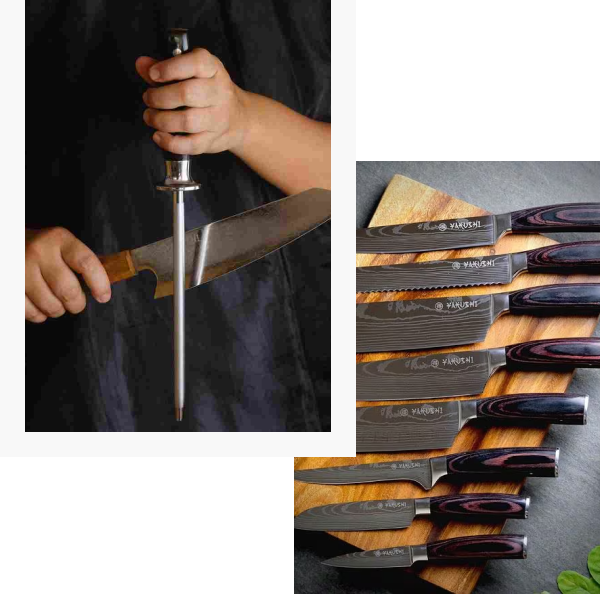
About the Knives
We are passionate craftsmen, dedicated to creating exceptional Japanese knives that embody beauty, function, and tradition. We use only the finest materials and employ conventional forging techniques to ensure that our knives are not only razor-sharp and durable but also a work of art.
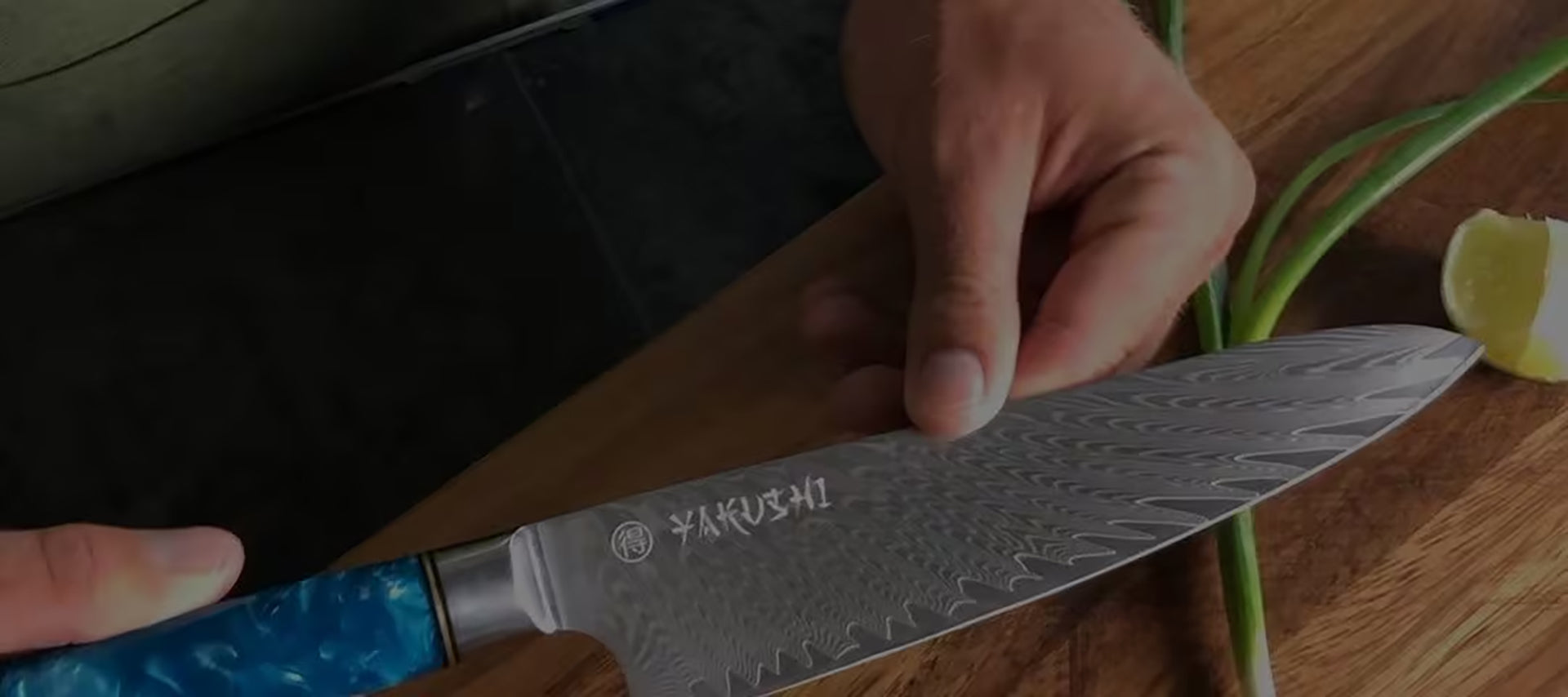
WATCH VIDEO
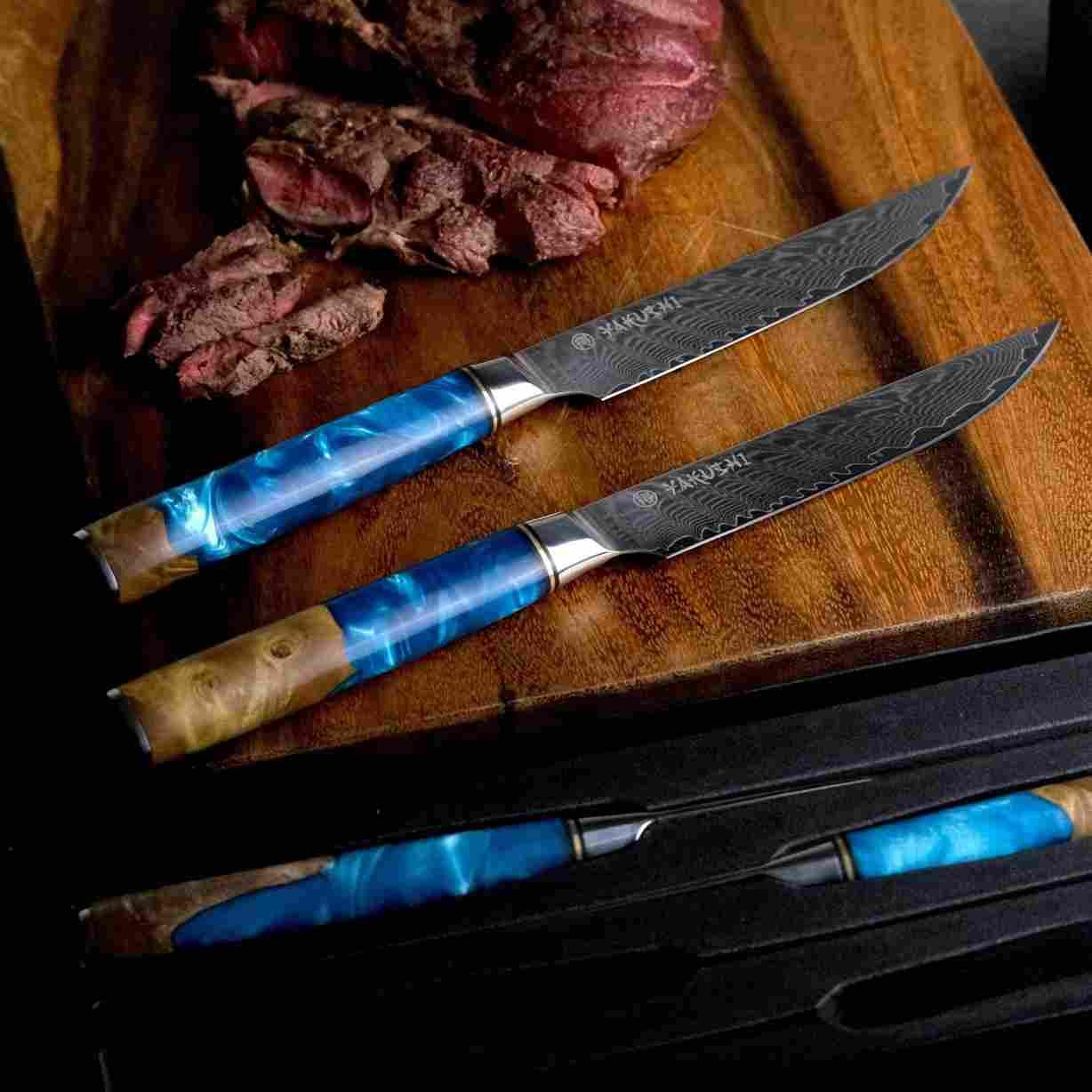
Yakushi™ Damascus Steel Chef Knife
A Classy Handcrafted Set, Not only for special occasions.
This Steak Knife Set includes four beautifully crafted knives, making it perfect for families or small dinner parties. The knives come in a stylish box, making it an excellent gift for any steak lover in your life.
I really like the traditional look. They have perfect balance and grip. Incredibly sharp as well!

The Knives are perfect and sharp! I love chopping vegetables with my family now!

I ordered the 5 Piece Set and it exceeds my expectations!


